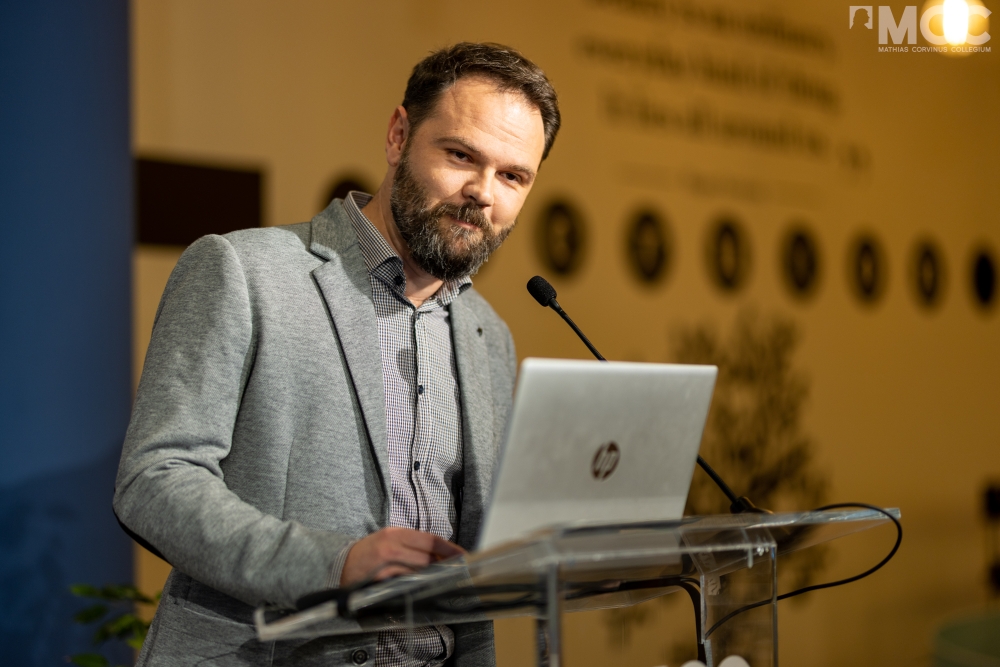On 28th October 2022 the Youth Research Institute held an international conference addressing the values held by contemporary societies. At the event, a keynote address was delivered by Dr. Anthony Daniels – also known by his pen name Theodore Dalrymple –, a British author, journalist, social critic, and physician widely known for his commentary on contemporary Western societies. Dr. Daniels is a senior fellow at the Manhattan Institute and editor of its magazine City Journal.
At the event, the findings of the Youth Research Institute’s international survey Values Under Siege. The research was constructed to examine the orientation and perception concerning societal values among 1000 respondents of five European countries (Hungary, France, Germany, the United Kingdom and Italy) through a questionnaire survey.
In the examined countries, the most important values appeared to be family, friends and leisure and the least important were religion and politics. With France as an exception, in all countries examined, the most supported endeavors were related to the family and children. Regarding the future, the Italians and the French were the most pessimistic, while the Hungarians had the most optimistic view of the future. All countries appeared to be integrated societies and also there was an agreement in these countries that society must be developed gradually through reforms. In the surveyed countries, respondents were more likely not to be worried about the devaluation of things and values important to them.
After the presentation Dr. Daniels, being an expert at different cultures’ values, shared his thoughts on the crisis of values in contemporary Western societies and the decline of traditional virtues. Dr. Daniels described Western societies in which people tend to be more bad-tempered, easily offended and intolerant about each other, also they are much more sensitive to certain subjects. He said it is a bad strategy if people react with malevolence to divisive subjects. For example, regarding abortion laws where ‘shouting louder’ than the other party became more important than the actual debate.
Another phenomenon he recognizes is if someone doesn’t particularly agree with the morals of their colleagues or their workplace, they don’t give voice to their disagreements because of the fear of losing or harming their career. He said, in the US, coherence is a really important principle, which causes that if someone has a certain outlook on one subject, they are automatically labeled with ‘connecting’ beliefs. Opinion became a measure of how good or bad of a person we are. About most subjects there is a right and wrong opinion (like climate change, BLM, MeToo, immigration).
He said these days the individual psyche tends to be more fragile. People require protection from even trivial harms or attacks on their supposed rights. Due to laws defining our morals, most people in societies leave decisions to the law so they don’t have to make a decision about it.
Dr. Daniels’ keynote speech was followed by a roundtable discussion with input from Stephen Sholl, researcher at MCC, Dr. David Dusenbury, visiting senior fellow at the Danube Institute, and Dr. Anthony Daniels. The discussion was moderated by Ferenc Sullivan, research fellow at the Youth Research Institute.
Firstly, the panelists discussed the Youth Research Institute’s survey on the values held by youth in Western societies. The research found that family remained an especially important value across European societies; on the other hand, the media often conveys that the institution of family is in crisis. Stephen Sholl pointed out that the core issue concerning the supposed resurgence of the family is how family is defined. One party emphasizes traditional families, the other highlights rainbow families, single parent families and broken families.
After discussing matters related to families, the panelists moved to the topic of the decline of Christianity in the Western world. The Institute’s research revealed that religious faith was one of the least important values for the youth. On the other hand, a larger-than-average share of Hungarians are willing to maintain the role played by churches within society. Sholl stated that while there are many contenders to take over the place of Christianity, we are still using its language in our everyday lives. From this point of view, non-Christian societies seem like a rather dystopian future. According to David Dusenbury, the most likely contender to take over the place of Christianity is faith in technology. Dr. Daniels was skeptical about the idea that there will be a replacement for Christianity with equal significance.
The following topic was about how young people are more conformist regarding political views and how they tend to identify more with their parents’ beliefs. According to Sholl, a rebellious nature can still be observed in youth, albeit in different ways from previous generations. From his perspective, there is a chance that becoming conservative is also a radical, rebellious act as society is more drawn towards liberal values. Dusenbury argued that nowadays people are forced to secure themselves at a very young age, that also can cause conformity among them. In addition, according to the research the other least important value among youth beside religion was politics. Politics was rather unimportant in the lives of the survey’s respondents (57 percent said it is rather or completely unimportant for them).
Ferenc Sullivan and Stephen Sholl had similar opinions on why conservative parties are losing votes, pointing to their reluctance to use moral language and categories. Sholl explained why this might have occurred. In his opinion, the Left is really strong in its moral convictions and they are more likely to fight for their moral beliefs (like abortion legalization). However, the problem with conservatives is that because the majority of people don’t believe in some of their values, they tend to not fully stick to them so eventually they need to recover their own faith in their values.











